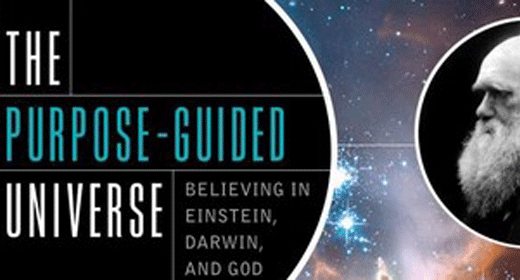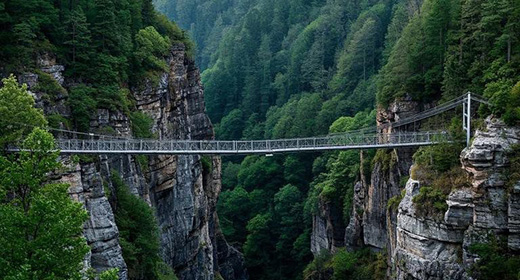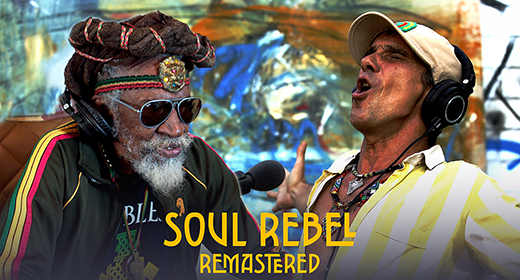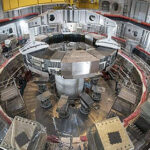We are here to awaken from the illusion of our separateness. —Thich Nhat Hanh
I came to realize clearly that mind is no other than mountains and rivers and the great wide earth, the sun and the moon and the stars. –Dogen
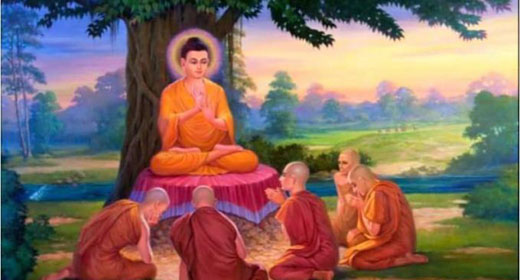 Zen teacher David Loy: Do Buddhist teachings offer a different way of understanding the ecological crisis? Although the Buddha lived a long time ago, there seem to be profound parallels between what he taught about our individual predicament and our collective ecological predicament today. If those parallels are valid, the eco-crisis is not only a technological and economic challenge but also a spiritual one.
Zen teacher David Loy: Do Buddhist teachings offer a different way of understanding the ecological crisis? Although the Buddha lived a long time ago, there seem to be profound parallels between what he taught about our individual predicament and our collective ecological predicament today. If those parallels are valid, the eco-crisis is not only a technological and economic challenge but also a spiritual one.
In both cases the basic problem is duality: the delusive sense of a separation between myself and other people, between ourselves and the rest of the biosphere.
In contemporary terms, our sense of being separate from others is a psychosocial construct, composed of habitual ways of thinking, feeling and acting. The construction of a “me” inside is also the construction of an external, objective world experienced as outside. This duality is at the root of my suffering, because the supposedly separate self is always insecure. It can never secure itself because there’s nothing substantial that could be secured. But we nonetheless keep trying to secure ourselves, usually by identifying with things “outside” us that (we think) can provide the grounding we crave: money, possessions, reputation, etc. Tragically, such attempts to solve the problem often reinforce the sense that there’s a “me” separate from others.
The Buddhist solution to this predicament is not to get rid of the self, because there is no substantial self to get rid of. I simply need to “wake up” and see through the illusion of separation: I am not inside, peering out at an external world. Rather, “I” am what the whole world is doing, right here and now. This realization frees me to live as I choose, but that will naturally be in a way that contributes to the well-being of the whole, because I don’t feel apart from that whole.
This Buddhist account of our individual predicament corresponds precisely to our collective ecological predicament today:
1. Like the self, human civilization is also a construct that involves separation and suffering. That civilization is our collective construct, which we can and do reconstruct, is obvious to us but was not obvious to most premodern societies, which assumed that their own social structure was just as natural (and therefore inevitable) as their local ecosystems. The distinctions we now make between the natural world, the social order, and religion did not exist for such cultures. Often they believed they served an important function in keeping the cosmos going: for the Aztecs, mass human sacrifice kept the sun-god on his correct course through the heavens.
The important point is that such peoples shared a collective sense of meaning we have lost today. That meaning was built into the cosmos and revealed by their religion, both taken for granted. In contrast, the meaning of our lives and our societies has become something that we have to determine for ourselves in a universe whose meaningfulness (if any) is no longer obvious. The price of the freedoms we cherish today is losing their kind of “social security”: the basic comfort that comes from “knowing” one’s place and role. What sort of world, what kind of society, do we want? If we cannot depend on God or godlike rulers to tell us, we are thrown back upon ourselves, and the lack of any grounding greater than ourselves is a profound source of suffering, collective as well as individual.
2. Our collective response to that alienation and anxiety is making things worse. Just as I try to secure my anxious sense of self “inside” by compulsively identifying with things in the “outside” world, the collective equivalent is our institutionalized obsession with never-ending “progress.” What motivates our attitude towards economic and technological “growthism”? Why do we always need more? Why is more always better if it can never be enough?
Technology and economic growth in themselves may be a good means to accomplish something but they are not good as ends-in-themselves. Since we are not sure what else to value and seek, however, they have become a collective substitute: a kind of secular salvation that we pursue but never quite attain. Lacking the security that comes from “knowing” our role in the cosmos, we have become demonically obsessed with ever-increasing power and control, trying to remold the earth until everything becomes a “resource” to use. Ironically, if predictably, this has not been providing the sense of security and meaning that we seek. Culturally as well as individually, we have become more anxious and confused.
3. Just as there is no need to get rid of the separate self, because it is a delusion, so there is no need to return to nature, because we have never left it. The Earth is not only our home, it is our mother. In fact, our relationship is even more intimate, because we can never cut the umbilical cord. The air, water, and food that pass through us have always been part of a greater holistic system that circulates through us.
If this is an accurate description of our collective situation, the ecological crisis requires more than a technological response. We must recognize that we are an integral part of the natural world and embrace our responsibility for its welfare, for the well-being of the biosphere ultimately cannot be distinguished from our own well-being.
But how does realizing our nonduality with the Earth resolve the basic anxiety that haunts us now, because we must create our own meaning in a world where God has died? Like it or not, today we are called upon to serve a vital function: the long-term task of repairing the rupture between us and Mother Earth. That healing will transform us as much as the biosphere.






